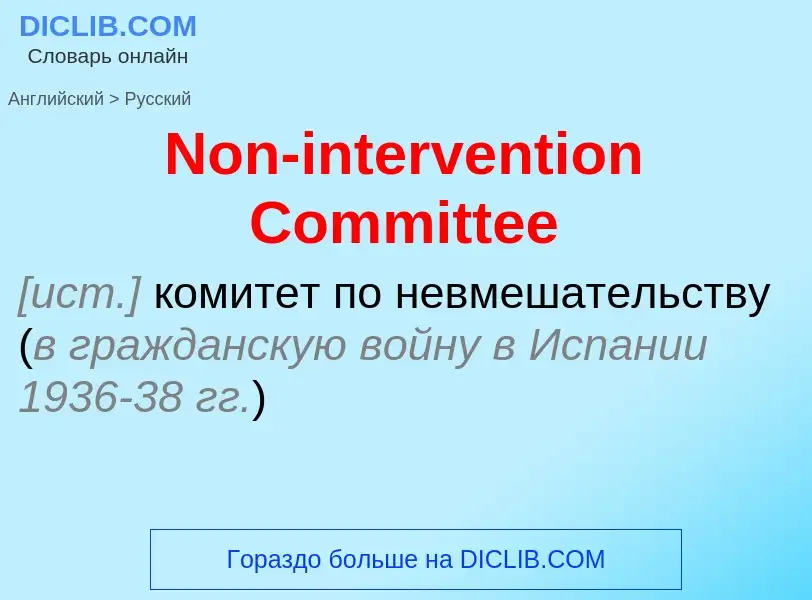Traducción y análisis de palabras por inteligencia artificial ChatGPT
En esta página puede obtener un análisis detallado de una palabra o frase, producido utilizando la mejor tecnología de inteligencia artificial hasta la fecha:
- cómo se usa la palabra
- frecuencia de uso
- se utiliza con más frecuencia en el habla oral o escrita
- opciones de traducción
- ejemplos de uso (varias frases con traducción)
- etimología
Non-intervention Committee - traducción al ruso
[nɔnintə'venʃ(ə)n]
существительное
политический термин
невмешательство
Definición
Wikipedia

During the Spanish Civil War, several countries followed a principle of non-intervention to avoid any potential escalation or possible expansion of the war to other states. That would result in the signing of the Non-Intervention Agreement in August 1936 and the setting up of the Non-Intervention Committee, which first met in September. Primarily arranged by the French and the British governments, the Committee also included the Soviet Union, Fascist Italy, and Nazi Germany. Ultimately, the committee had the support of 27 states.
A plan to control materials coming into the country was put forward in early 1937, effectively subjecting the Spanish Republic to severe international isolation and a de facto economic embargo. The plan was mocked by German and Italian observers as amounting to decisive and immediate support for the Spanish Nationalist faction. The subject of foreign volunteers was also much discussed, with little result. Although agreements were signed late in the war, they were made outside the Committee. Efforts to stem the flow of war materials to Spain were largely unsuccessful, with foreign involvement in the Spanish Civil War proving instrumental to its outcome. Germany, Italy and the Soviet Union consistently broke the Non-Intervention Agreement, and France occasionally did so. Britain remained largely faithful to the agreement.



